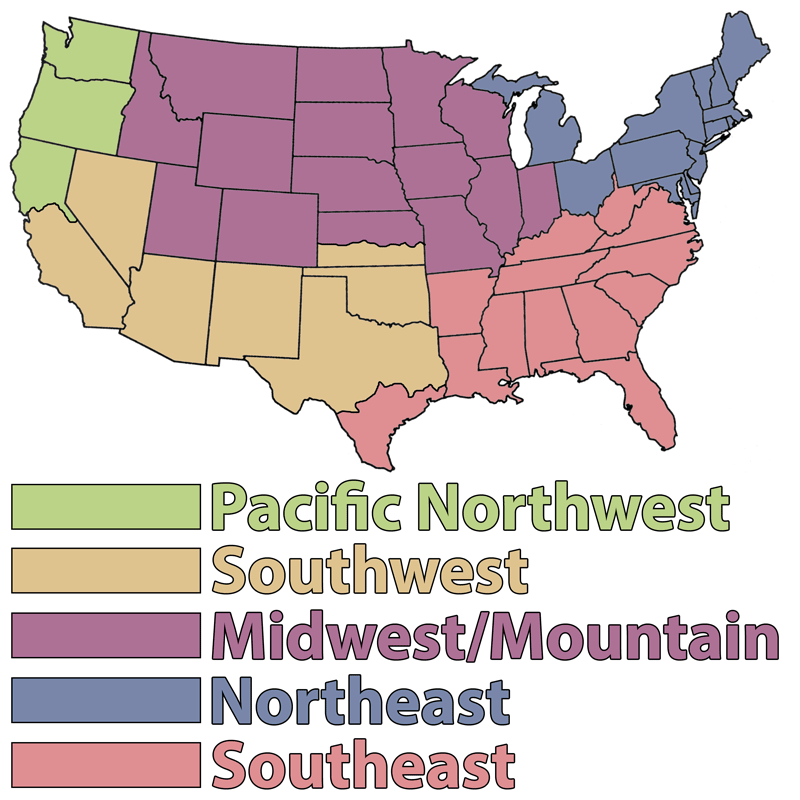Fertilize established fruit trees. Continue planting dormant fruit trees.
Gardening Tasks by Month for Springfield, TN
Gardening Tips
Springfield, TN
Regularly mow your lawn at recommended heights (St. Augustine and Bahia: 3 to 4 inches; Centipede: 1.5 to 2 inches; Dwarf St. Augustine: 2.5 inches).
After temperatures rise to 65 degrees F for 4 to 5 days, apply a pre-emergent weed killer to prevent warm-season weeds.
You can fertilize your houseplants with a water-soluble fertilizer when they show new growth.
Seed herbs for April planting.
Divide and transplant perennial herbs.
Prune roses to remove damaged canes. Then fertilize and apply mulch for protection.
Start your indoor seed boxes of tomatoes, peppers, eggplants, and cauliflower indoors.
Replenish mulch on strawberries.
Plant asparagus.
Plant Irish potatoes now! Plant 3 inches deep.
Plant more vegetables, such as lettuce, cabbage, collards, onion sets, brussels sprouts, broccoli, carrots, spinach, kale, mustard greens, radishes, turnips, peas, and beets.
Temperatures can drop to freezing this month; annuals that can take the chill include pansies, viola, and dianthus.
Prune shrubs now; wait to prune spring-flowering shrubs until after they bloom.
Prune dormant trees. Avoid pruning citrus until the spring.
If not done in January, fertilize established fruit trees now.
Finish planting shrubs and trees. Fertilize.
Fertilize spring-blooming bulbs.
Divide and replant crowded perennials after they emerge.
Put down mulch across all garden beds to control for weeds.
Continue to deadhead flowers, such as pansies.
Bulbs can still be planted. Water well and apply mulch for protection. Try dahlias!
Clean your annual and perennial flower beds. Add compost to the soil and add more mulch to the beds.
